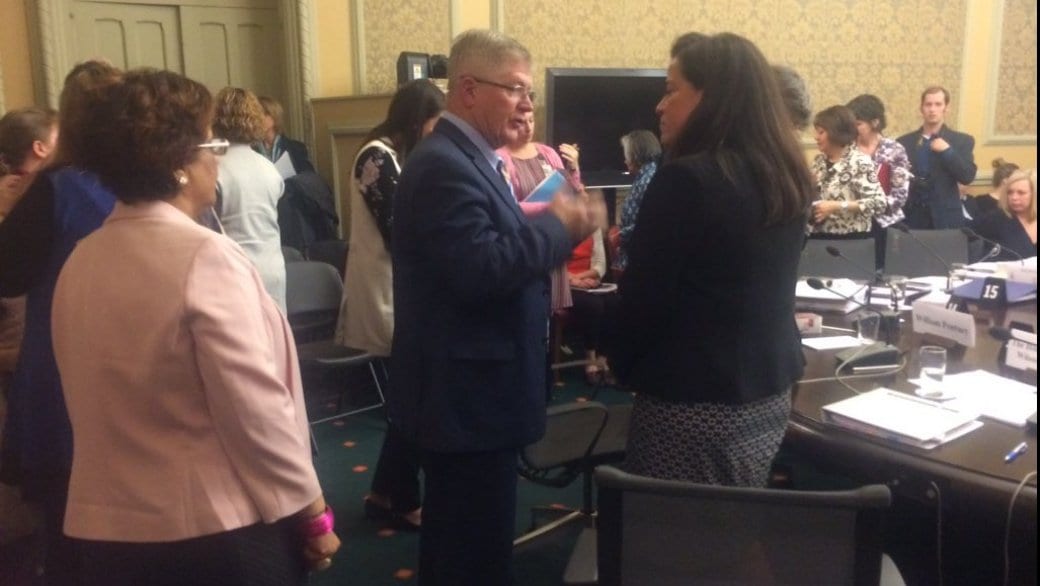A controversial University of Toronto professor will soon testify at a Senate committee studying Bill C-16, which would encode trans people into Canada’s human-rights laws, Xtra has learned.
On May 17, 2016, the federal Liberals introduced Bill C-16, which would protect trans people from discrimination targeting their gender identity and expression. The legislation follows a handful of similar bills that were tabled earlier by individual MPs.
Psychology professor Jordan Peterson is a strong critic of Bill C-16 and gained notoriety for claiming in September 2016 that his free speech is threatened by what he considers to be “political correctness.” He believes the bill will emulate “totalitarian and authoritarian political states” by criminalizing anyone who refuses to use a trans or non-binary person’s chosen pronouns. Legal experts have disputed Peterson’s interpretation of the bill.
Exactly a year after the bill’s introduction, Peterson will speak to the Senate legal committee, which is reviewing the legislation on May 17, Conservative Senator Don Plett tells Xtra.
“We have invited a range of people that we feel can help with the arguments. Jordan Peterson clearly brought to light the issue of compelled speech with the pronouns,” Plett told Xtra in a May 8 interview.
Liberal Senator Grant Mitchell, who sponsored the bill, tells Xtra that the Liberals initially intended to invite no witnesses, as Bill C-16 echoes similar legislation that was already studied, but says Plett wanted to invite Peterson and others.
“The committee made a responsible decision to trade it off at eight witnesses ‘per side,’” Mitchell says.
Plett says he’s skeptical the legislation would change the rates of suicide and bullying for trans people, because similar laws at the provincial level haven’t. “Obviously there is something else that is inherently wrong that this is continuing to happen,” he says.
Plett also tells Xtra he feels maligned by people who accuse him of hating trans people after amending a similar bill in 2015 to exclude bathrooms (the bill never became law).
“We all have feelings; of course it bothers me,” he says. “I have never, in all of my speeches, used one hateful term or said somebody’s inherent beliefs and feelings were not, in fact, correct. I have just simply said what my feelings are.”
Plett told the legal committee on May 4 that he supports protecting trans rights, but worried that an “intellectual dissenter” who rejects the idea of an “infinite gender spectrum” would be prosecuted.
The committee has published its guest lists for two days. May 10 features opponents of Bill C-16, like Paul Dirks of the WOMAN Means Something Campaign. May 11 features trans advocates like Marni Panas. Plett tells Xtra that witnesses will also include trans people who believe there are only two gender identities.
Mitchell also says the committee chair intends to have a clause-by-clause reading of the bill on May 17, which could pass quickly or delay the bill for weeks. Parliament starts a one-week break days later.
The bill will then face a final Senate vote and, if passed, may get royal aassent into law before the Senate rises on June 30, when it will break until mid-September.

 Why you can trust Xtra
Why you can trust Xtra


